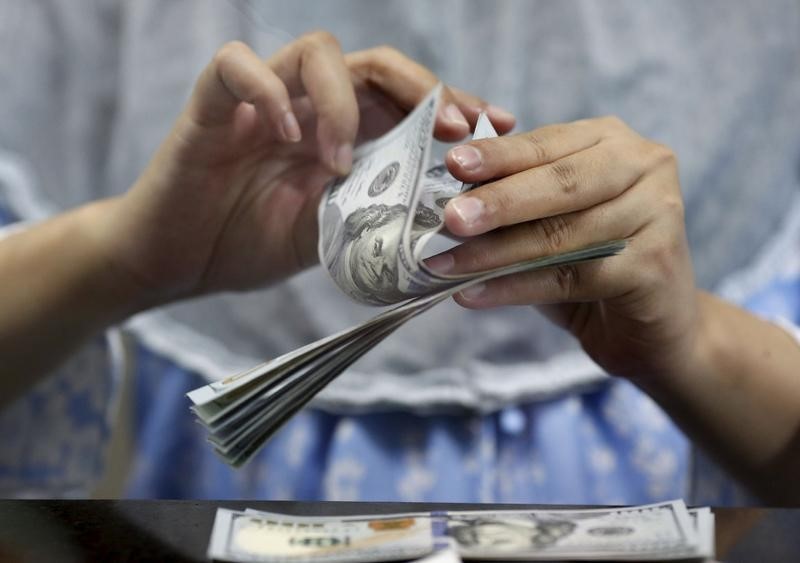IonQ reaches 1,000 patents milestone with new quantum computing grants
By Yasin Ebrahim
Investing.com -- The dollar suffered a bruising encounter Tuesday, but its swing lower may come to an abrupt end in the coming days as Friday’s U.S. monthly jobs data has the potential to drown out recent hopes of a Federal Reserve pivot.
The U.S. dollar index, which measures the greenback against a trade-weighted basket of six major currencies, fell by 1.3% to 110.220.
The dark days for the dollar, which have seen it shed about nearly 4% from its September peak, “shouldn’t have legs,” ING said, flagging Friday’s nonfarm payrolls report as a “potential trigger for a fresh hawkish re-pricing and a positive event for the dollar.”
Data on Friday is expected to show the U.S. economy created about 250,000 jobs last month, below the 315,000 seen in August, with average hourly earnings forecast to remain steady at about 0.3% and the unemployment rate at 3.8%.
As the labor market has remained tight, threatening an uptick in wages, the Fed has made it clear that slowing the economy, and job growth remain central to its plans to cool inflation.
Against the backdrop of red-hot inflation, Fed chairman Jerome Powell has insisted on a need-for-speed approach to get its benchmark rate into restrictive territory and has repeatedly pushed back against bets on a Fed pivot.
But a recent wave of softer global economic data has revived hopes of a Fed pivot, pushing Treasury yields lower and pressuring the greenback.
“Powell roiled markets back in September, as he strived to dispel the market’s belief in a Fed pivot in 2023; but his efforts are beginning to look more questionable as we approach year end,” Oxford Economics said in a note.
Yet, even if the Fed does signal a pause may be offing, the Fed’s fund rate, at 3% to 3.25%, still has plenty of room until reaching an expected peak, or terminal rate, of around 4.5% leaving ample ammunition for the dollar to snap its downturn.
“The US domestic story remains rather solid, leaving the Fed tightening prospects alive even if markets have recently revised the expected terminal rate to sub 4.50% levels,” ING said in a note.
